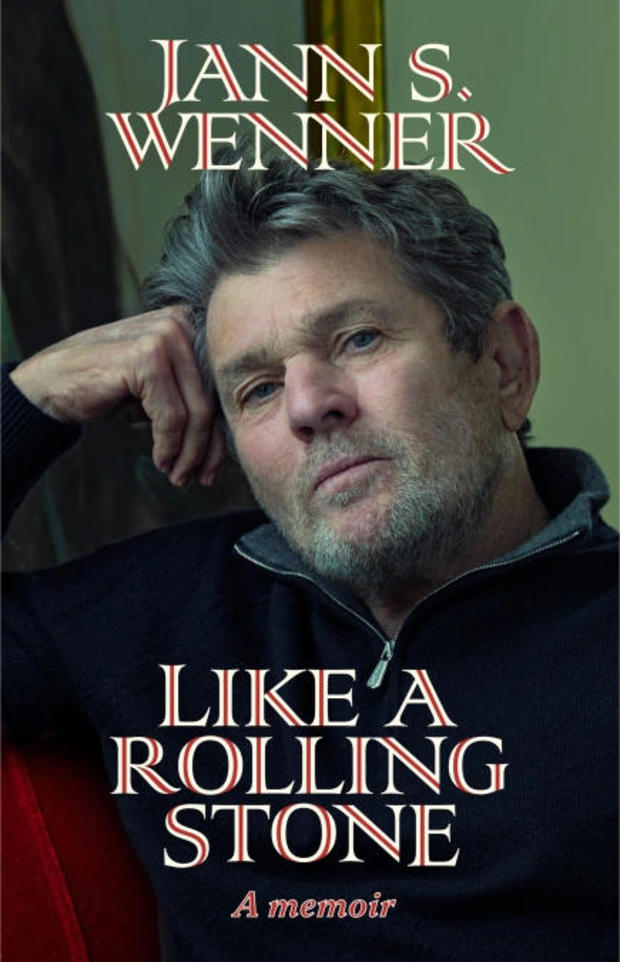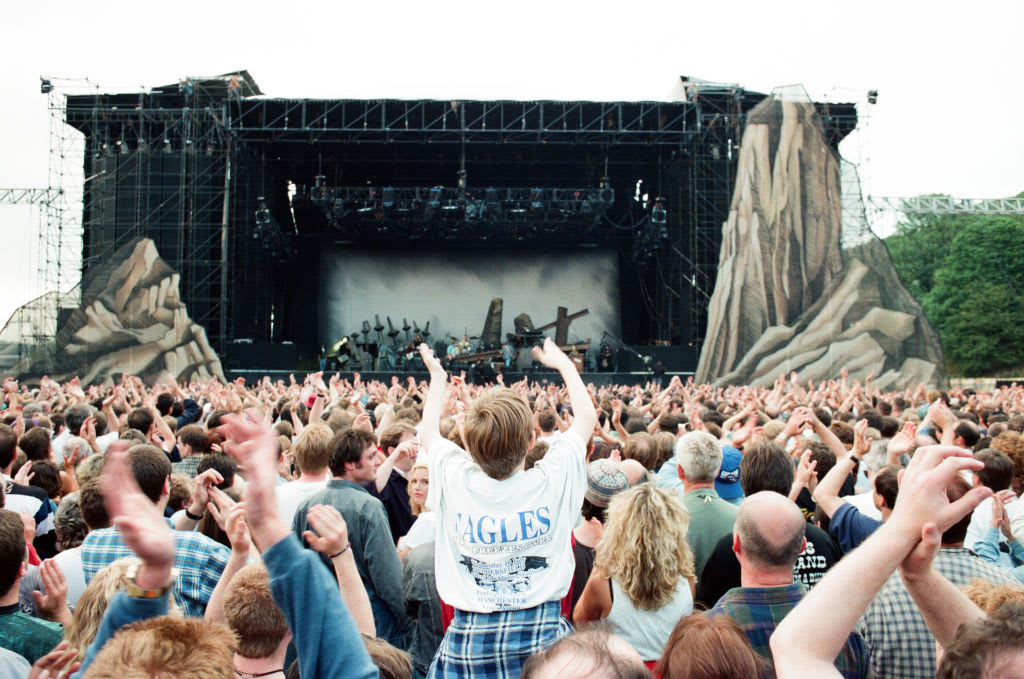Book excerpt: "Like a Rolling Stone" by Jann Wenner
In Jann Wenner's new memoir, "Like a Rolling Stone" (to be published September 13 by Little, Brown & Co.), the founder of Rolling Stone writes of the magazine's emergence as a celebration of the power and artistry of rock music – and also about a more personal celebration, when he is inducted into the Rock & Roll Hall of Fame.
Read an excerpt below, and don't miss Anthony Mason's interview with Jann Wenner on "CBS Sunday Morning" September 4!
I started out feeling blasé about my own induction into the Hall of Fame in 2004 but ended up with my head in the clouds. Prince, Traffic, George Harrison, ZZ Top, Bob Seger, and Jackson Browne were in my class, all of whom were close to Rolling Stone, in our world. Sharing the night with Jackson, whose songs and comradeship were such treasures for me, made it even richer. A week before the show, Ahmet told me that he had gotten Mick to come in from London to induct me.
We sat in a cluster of tables with Keith Richards and his daughters, and Mick's kids; Olivia Harrison was at the next table with her son, Dhani, his father's doppelgänger, and Yoko and Sean. It was a mess of Beatles and Rolling Stones and my kids, who all knew each other. I had Jane, Matt, the three boys, Don Henley, Tom and Sheila Wolfe, and Mick. It was a black-tie family picnic.
Prince opened the show with three blazing songs. Stevie Winwood, who I never realized was such a serious guitar player, did a ferocious solo on "Dear Mr. Fantasy" that was a full knockout. Seger had been off the road for many years, but the Waldorf ballroom felt like a juke joint when he ripped "Old Time Rock and Roll." Bruce spoke proudly about Jackson, his "meticulousness of craft, matched by deepness of soul." He also called him a "bona fide, rock and roll sex star," and admitted being jealous of his hair and the number of hot girls that came to see him play: "Jackson was drawing more women than an Indigo Girls concert."
Ahmet walked onstage with his cane, introducing my induction and giving a shout-out to Jane and Ralph Gleason. He spoke with gravitas. I tried to stay in the moment and take in the historical weight of Ahmet's speech. Then he said, "To further my remarks, Sir Mick Jagger." There he was, smiling wide with his tooth diamond sparkling, dressed in a black suit. I was able to relax into a groove of the pleasure, the treasure, the measure of this extraordinary moment. I wanted it to take me over. Mick made a gracious bow to Jane — "She was there at the beginning and she's here tonight" — who was beaming and blushing.
Mick looked down at Keith: "We remember the early days of the Stones in America, when the teen magazines asked really deep questions about what kind of girls you liked, blondes or brunettes, or Chinese food versus Italian food, what kind of socks.
"But this innocent triviality was swept away when in 1967 Rolling Stone changed all that by inventing the very long interview. Now you had to spend hours describing your views on everything from Vietnam to the Beatles, as well as, of course, your sexual preferences. Now intrepid Rolling Stone reporters hang out on tour with you and you must provide the drink, drugs, and even food to produce the interviews Jann demands ... "I must tell you that not so long ago, Jann decided he was going to do a very long interview with me and visit us on tour in small places where there wouldn't be interference. After a couple of interviews, he said, 'You know, I'm really getting into this. It's like I feel like I'm a cub reporter again.' I said, 'Yeah, Jann, you're a cub reporter with the Gulfstream G4 waiting at the airport.'
"Jann was one of the first music critics and editors that really understood how we as artists felt and could sympathize with our yearnings. Jann almost single-handedly pioneered the idea of popular music and of rock and roll in particular as a vibrant art form. It was Jann who elevated our music to a place where it enjoys the status of other musical forms.
"This is a wonderful, heartfelt occasion, and I will treasure the memory of it all the way to the airport."
I had prepared a speech, given it a lot of thought, and had much to say and many to thank. "To the two most elegant men in the room, Ahmet Ertegun and Mick Jagger, I am honored by you. Ahmet, you are a national treasure. You have done so much for me.
"Sir Mick Jagger [I made a bow], how cool it is to be inducted by you. You still have the world's greatest rock and roll band. I always set my compass to you, Mick, and guided Rolling Stone by how you conducted yourself as an artist and as a driving force, how you held it all together with such intelligence and integrity. It's been a pleasure to be your friend for all these years, and you coming here tonight means the world to me."
At the end of the proceedings Prince stepped out of the shadows into the all-star ensemble performance of "While My Guitar Gently Weeps." His playing was transcendent. I remember standing there, my mouth open, tearing up, in dumbstruck awe. It can be seen today on an Imax screen at the Rock and Roll Hall of Fame in Cleveland. The greatest performance in the history of the Hall of Fame was that night.
From "Like a Rolling Stone: A Memoir" by Jann Wenner. Copyright © 2022 by Jann Wenner. Reprinted with permission of Little, Brown and Company. All rights reserved.
For more info:
- "Like a Rolling Stone: A Memoir" by Jann S. Wenner (Little, Brown and Co.), in Hardcover, eBook and Audio formats, available September 13 via Amazon, Barnes & Noble and Indiebound

